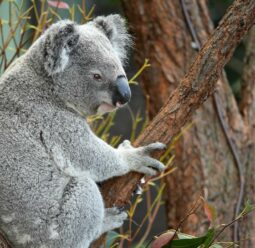Barney over barley continues despite China tariffs axe
The trade minister is calling for all barley producers to have Chinese market access with the largest exporters remaining blocked despite tariff removal.
The trade minister is calling for all barley producers to have Chinese market access with the largest exporters remaining blocked despite tariff removal.
Government documents indicate a shortfall of hundreds of millions of dollars in fire ant funding and could mean the super pest keeps spreading, critics say.
Growers have welcomed the Chinese government's decision to lift tariffs on Australian barley imports, which were effectively shut out of the key export market.
Women are the glue that holds rural communities together, something the Queensland Rural, Regional and Remote Women's Network is celebrating in its 30th year.
The federal government hopes China will lift tariffs on Australian wine after China confirmed it will drop duties on barley.
Ever wondered what some of Central Queensland’s iconic stations and newly established towns were really like in the nineteenth century? The recently published, Capricorn drover, could give you an idea.
Out of the pan and into the fire ants, Queensland's agriculture minister is adamant a battle to contain the invasive pests is being won.
Australia's chief vet has reassured Indonesian authorities that Australia remains free of the potentially deadly lumpy skin disease.
A new "horseshoe" configuration will be deployed in the fight to contain and eradicate a destructive invasive insect species marching south.
Farmers from northern NSW worried about fire ants want authorities to consider checkpoints on the Queensland border to halt the spread of the pest.
There are concerns that a Coles plan to buy two milk processing plants will give the supermarket giant greater power and bargaining influence on the market.
Fruit pickers and farm workers across two states will be found new jobs after a federal decision over what unions say amounts to modern slavery.
The discovery of a new fire ant nest within kilometres of the NSW border has renewed calls for fast-tracked funding to eliminate the dangerous pest.
Fire ant spread will be worse than rabbits, cane toads, foxes and feral cats combined, the Invasive Species Council says as biosecurity controls are triggered.
Agriculture ministers will meet in Perth, with the phase-out of caged eggs among topics to be discussed, amid warnings of more expensive eggs.
Agriculture Minister Murray Watt has released a damning report into mismanagement at the Australian Pesticides and Veterinary Medicines Authority.
Some 55 farm workers died on Australian farms last year, sparking a new campaign to encourage agricultural workers to 'stay on the safe side'.
Trade conditions are expected to improve for Australian farmers, although dry weather could weigh on some producers, Rural Bank says.
El Nino conditions will likely make 2024 the world's hottest year on record, leaving Australia in a precarious position for bushfires.
Australia's red fire ant invasion is more than 20 years old but people are yet to grasp how everyday life will change if efforts to defeat the super-pest fail.
Dozens of Angus cows and bulls have been stolen from a remote paddock in Queensland where police have described cattle theft as a "deplorable act".

To mark World Environment Day, Australian conservationists are calling for banks to stop funding the clearing of wildlife habitats by agriculture businesses.
The free-trade agreement between Australia and the UK has come into force, creating opportunities for exporters and making some British goods cheaper.
A report is predicting drier conditions will take a toll on this year's winter crop production, with grain growers nervous about the year ahead.
High farmgate prices are driving positivity in the dairy industry but not all farmers share the optimism.
Australia's water inspector has railed against holes in laws meant to safeguard the resource, calling them rubbish and saying only morons are at risk.
A report shows Queensland is leading support for carbon farming industry, while the federal government, WA and NSW made big improvements.
Agricultural land has risen for a ninth year, with Tasmania experiencing the strongest growth in the past 12 months while Queensland had the most land sold.
Year 11 and 12 pupils at Cooktown State High School received an up-close glimpse into the world of agriculture through a three-day Ag Inspirations event in the Cooktown/Lakeland area.
Good rain across Australia's cropping regions has given growers a head start on the season, but production is not expected to match records of previous years.
Mice numbers are on the rise nationally, with swarms of the rodents spotted in northern NSW, sparking a warning for farmers to remain vigilant.